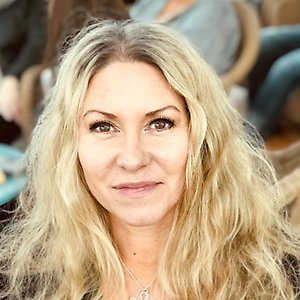
Maria Eriksson Baaz
Professor Proprefekt
- Maria.ErikssonBaaz@fhs.se
- +46738514079
- Department of War Studies
- Department Management
- War Studies
About Maria
- Engelsk beskrivning om dig själv
-
Maria Eriksson Baaz is professor in War Studies and joined the Swedish Defence University in January 2024.
Her research is situated at the nexus of war studies with a focus on the sociology of war, the military and violence; post-colonial theory and critical race studies; intervention studies; the sociology of knowledge, including methodology and ethics.
Since 2003 Eriksson Baaz has been engaged in a range of collaborative research projects centering on violence against civilians in war with a particular attention to sexual violence and the DR Congo. The research has been conducted with a range of methods and perspectives, from in-depth interviews and ethnography attending to the experiences of perpetrators, to more quantitative methods seeking to develop a better understanding of the relations between different forms of violence, as well as the dynamics and logics behind the immense variations of the violence committed. She has also conducted extensive research on security governance through post-conflict security sector reform, drawing, amongst others, on post-colonial perspectives.
Prompted in part by the numerous ethical challenges encountered while conducting qualitative research on violence, Eriksson Baaz is more recently increasingly engaged in questions about research methodology and ethics. Together with colleagues, she recently completed a research project that explored the crucial contribution of so called “research assistants” in war studies.
Eriksson Baaz has previously worked at the Department of Government, Uppsala University (ongoing part-time) and the School of Global Studies, University of Gothenburg. She is a member of the editorial boards of three international, peer reviewed journals: Critical Military Studies, African Security and Global Studies Quarterly. She has also served as a member of various academic boards and committees, such as the Alva Myrdal Center for Nuclear Disarmament (Uppsala University), the Expert Group on Ethics at the Swedish Research Council, The Centre for Multidisciplinary Studies on Racism (Uppsala University- ongoing), Sida’s Scientific Advisory Board, and the Swedish Ethics Review Authority.
She is currently engaged in two externally funded research projects:
“Sex, violence, sexual violence? An analysis of distinctions between war and peace” (2023-2025), financed by Riksbankens Jubileumsfond, together with Maria Stern and Sara Stendahl.
While sexual violence occurs in both peace and war there are both tacit and explicit understandings in scholarship, policy, and jurisprudence that conflict-related sexual violence and sexual violence in peacetime settings differ significantly. In peacetime, the absence of consent largely determines when violence has occurred, who has been harmed and how, and who shall be held accountable. By contrast, war is seen as a ‘coercive environment’ in which consensual sexual relations between enemy combatants and civilians are impossible. Yet, there are many ’grey zones’ that problematize clear divisions between war and peace, coercion and consent, violence and sex. This project bridges scholarship on sexual violence addressing peacetime settings with scholarship on conflict-related sexual violence and continuums of violence by exploring how lines of distinction between sex/violence are being drawn in different sites.
“Silencing and Marginalization of Facilitating Researchers from the Global South: Analyzing the role of Academic Institutions and Norms”, financed by the Swedish Research Council (2023-2025), together with Oscar Abedi Dunia, Anju Oseema Maria Toppo, Swati Parashar, Mats Utas and James B.M. Vincent
Building upon insights from previous research, this project aims to contribute to further knowledge about the role that academic institutions situated mainly (but not only) in the Global North play in the silencing and poor working conditions of facilitating researchers in insecure zones. It includes an analysis of research funding bodies, ethics committees, universities and publishers in Sweden, the UK, France and India, and attends to a range of aspects such as prejudice, academic conventions and administrative rules and regulations.
Latest publications
-
Recognizing Complicity and our Unwillingness (and Inability) to do soPart of Global Partnerships and Neocolonialism
